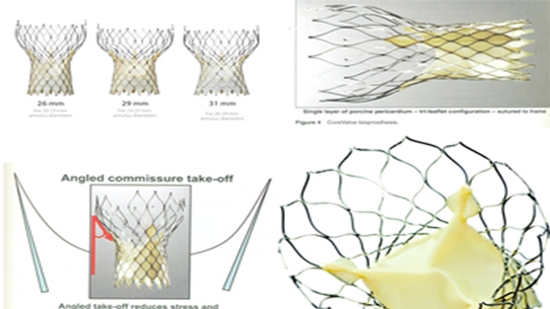The first non-surgical aortic valve replacement via femoral artery performed in Shahid Modaress Hospital

Dr.Namazi, the SBMU Interventional cardiologist, gave a report on non-surgical aortic valve replacement via femoral artery which is performed for the first time in Modaress Hospital.
Dr.Namazi, in charge of the SBMU Interventional cardiology fellowship, having pointed out to the novel medical advancement in treatment of patients suffering from aortic valve stenosis stated that the non-surgical aortic valve replacement via femoral artery and angiography known as Transcathether Aortic Valve Implantation(TAVI) is mainly performed in patients above 80 years of age, since open heart surgery is a high risk procedure in such patients.
Having referred to signs of the disease, he added that in severe aortic valve stenosis the patient suffers from dyspnea, and his quality of life and life expectancy decrease. Usually, open heart surgery in patients above 80 years of age to replace aortic valve is a high risk procedure and the rate of mortality is significantly high.
He explained that TAVI is a procedure in which an artificial heart valve designed to be inserted into your heart so that it holds open and replaces your diseased aortic valve. It consists of a metal stent which secures the device in its intended position inside your own valve, and valve leaflets to direct the flow of blood out of your heart. TAVI now offers effective treatment to patients who are at high risk for conventional open heart surgery, and recently it has been a successful treatment modality in Europe, Germany and the US. It is also intended to prevent further damage to the heart from Aortic Stenosis and to prolong life.
He referred to this technique as one of the most difficult ones in the world, which requires an effective team work and professional and experienced medical teams including cardiologists, cardiovascular surgeons, echocardiographists and of course anesthesiologists.
Dr.Namazi referred to the advantages of this treatment and explained that the patient is able to move a few hours after the procedure, and be discharged after one week, provided that no complication occurs.
He also referred to the indication for use of the procedure and stated that older patients with weak heart pump or the ones who suffer from advanced lung disease, renal failure, etc. are suitable cases to undergo this helpful procedure. In this technique, there is no pressure difference on both sides of the valve, and aortic valve stenosis is completely treated.
He pointed out to reduced heart beat as the most important complication of TAVI technique in 10% of patients who may need a temporary or permanent pace maker.
In the end, he referred to TAVI as the most advanced treatment technique in the world, and said that fortunately this technique is now applied in Modaress Hospital. He hoped that this procedure be widely practiced in treatment centers and hospitals to witness treatment of patients by means of novel methods and techniques to be performed by Iranian specialists in the country.

Comment